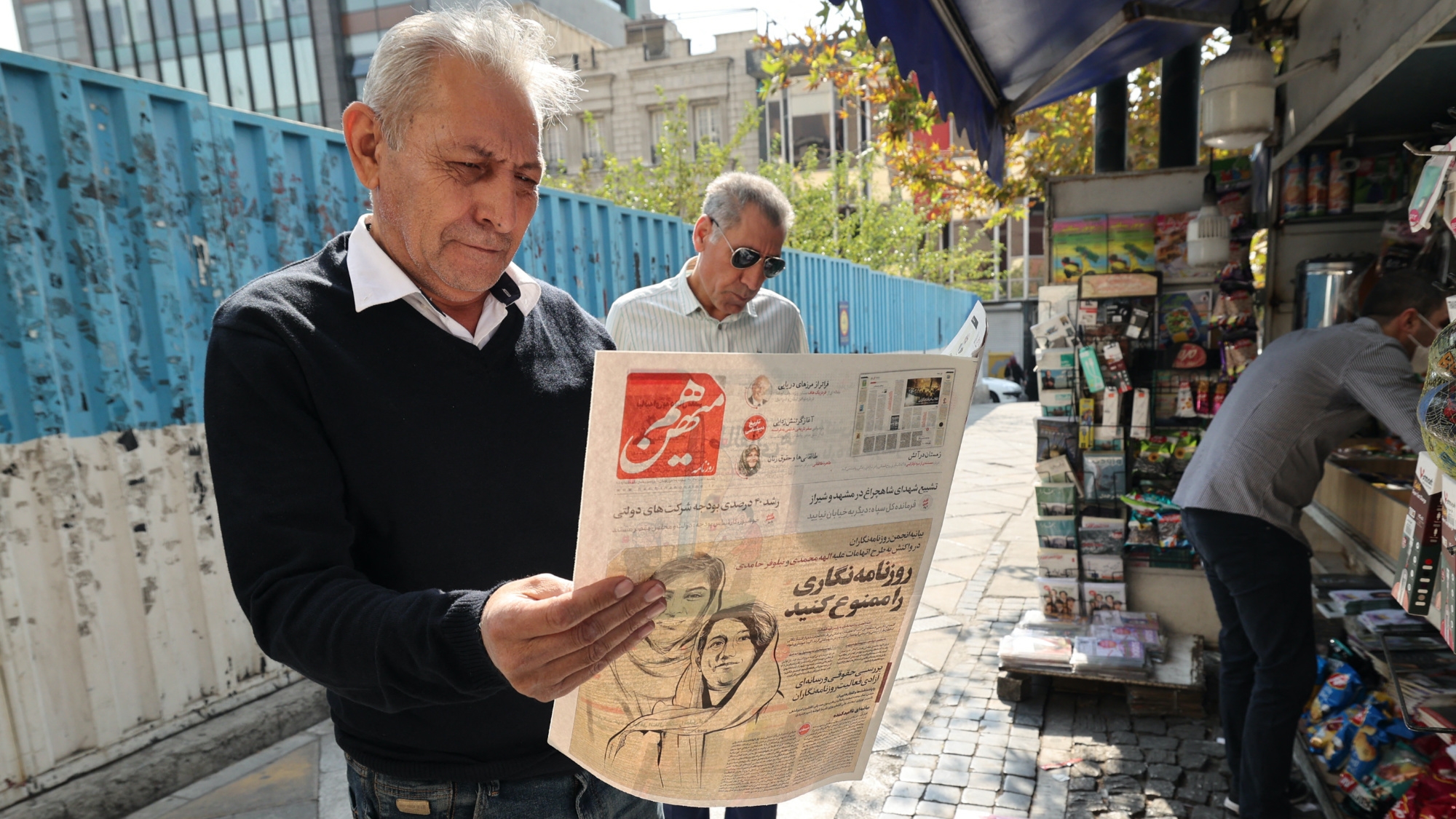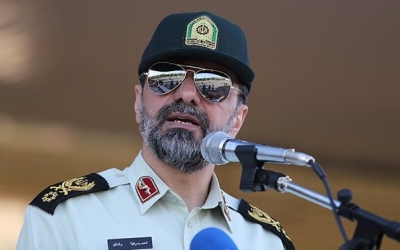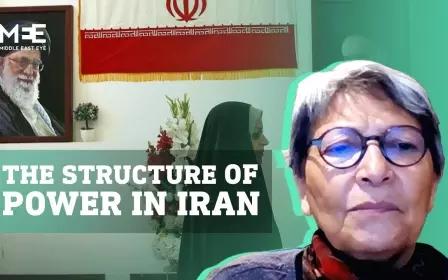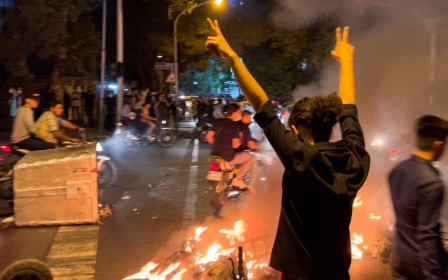Iranian press review: MPs move to criminalise 'unknowledgeable remarks'

New restrictions on freedom of expression
A group of 24 Iranian conservative lawmakers has submitted a draft law to parliament that would criminalise "expressing irrelevant and unknowledgeable remarks by celebrities and famous people", local media reported.
The draft law suggested a third-degree punishment for what it labelled "unknowledgeable remarks".
'It is illegal to punish people for their beliefs, but it is not allowed to express those beliefs with total freedom'
- Hossein Ali Haji Deligani, MP
According to Iran's criminal law, a prison sentence of up to 15 years could be issued for a third-degree felony.
Hossein Ali Haji Deligani, the mastermind behind the draft law, said that the legislators' aim is preventing the spread of false news that would cause damage to the country.
"It is illegal to punish people for their beliefs, but it is not allowed to express those beliefs with total freedom," he was quoted as saying.
Haji Deligani added that the law aimed to control and monitor citizens with high social and political status, superstars, famous sportspersons, and social media influencers.
During the 2022 anti-establishment movement, several Iranian movie stars and national champions were arrested and summoned to court for showing their support to protesters on social media.
Family of boy killed by security forces summoned to court
The parents of Kian Pirfalak, a nine-year-old boy killed by security forces in November, were officially summoned to court in the western city of Izeh.
Days after the news circulated in Farsi media about the summoning, the judiciary's Mizan Online website said that they were asked to go to court for further investigation into their son's death, and were invited "to file a complaint if they wished".
After Kian's death, his mother, Zeinab Molaei Rad, was under pressure from security forces to say her son had died in an attack by armed protesters.
However, several times, she stressed that security forces had opened fire at their car, killing Kian and severely wounding her husband.
In late January, pressure mounted on Molaei Rad, and she was banned from teaching at Fatemih Art High School, where she had taught graphic design for the past five years.
Questions have also been asked as to why Kian's father, Meysam Pirfalak, who is in critical condition after having been injured by live ammunition and falling into a coma in the same incident where his son was killed, has been issued a written order to appear in court.
The incident took place amid a violent crackdown on the anti-government protests that have swept the country since the death of Mahsa Amini in police custody in September.
Amini was arrested for violating the country's strict dress rules.
After two operations, Pirfalak survived. However, his physician brother said that Pirfalak still could not stand up or sit down.
It is not clear when the Pirfalaks are expected to appear in court.
Meanwhile, the Izeh prosecutor told Mizan that the judiciary would persecute those who cover the case of the Pirfalak family in a way that deviates from the official narrative.
Row over school closures caused by pollution
An initiative by Education Minister Yousef Nouri to change the rules regulating school closures when air pollution reaches hazardous levels has received broad opposition from health experts and officials in the Iran Meteorological Organisation.
Nouri proposed his initiative after several days of school and university closures in Tehran and other major Iranian cities because of high levels of air pollution.
The government's Department of the Environment had established an air quality index of 150 as the threshold for closing schools, a level that officials in the ministries of education and interior want to push higher.
Sahar Tajbakhsh, the director of the Iran Meteorological Organization, criticised the initiative and suggested Ebrahim Raisi's cabinet find a solution "to control air pollution" instead of changing policies.
Yousef Rashidi, a former expert at the Department of the Environment, told ISNA news agency that the presidential cabinet's proposal is "sweeping the issue under the carpet instead of taking necessary measures to reduce air pollution".
Most major Iranian cities suffer from poor air quality caused by the use of non-standard petrol, old public transport fleets, burning mazut in power plants, and industrial air emissions.
Wardrobe instructions for movies and TV series
Television and film companies face new restrictions on actors' wardrobes and stage movements under new regulations proposed by the culture ministry, reported Mehr News.
Seyyed Majid Emami, the director of the public culture office, said the new set of outfit guidelines for the entertainment industry would guarantee that actors' appearances in movies, TV shows, and series follow Islamic law.
"The guideline defines the norms that must be considered for artists' clothing," he said.
Emami also hinted that the Public Culture office would impose more limitations on stage design and instruction of actors in entertainment productions.
"There are some issues in productions' mise-en-scene and how the actors move. This should also meet with the values of a chaste life," he added.
The mandatory hijab law and regulations related to what women and men can wear in Iran have been at the centre of social and political debate following the death in custody of Mahsa Amini in September.
Despite resisting the establishment's obligatory regulations on citizens' clothing, several governmental offices have ordered more restrictive measures on what their employees and clients can put on.
*Iranian press review is a digest of news reports not independently verified as accurate by Middle East Eye.
Middle East Eye propose une couverture et une analyse indépendantes et incomparables du Moyen-Orient, de l’Afrique du Nord et d’autres régions du monde. Pour en savoir plus sur la reprise de ce contenu et les frais qui s’appliquent, veuillez remplir ce formulaire [en anglais]. Pour en savoir plus sur MEE, cliquez ici [en anglais].






